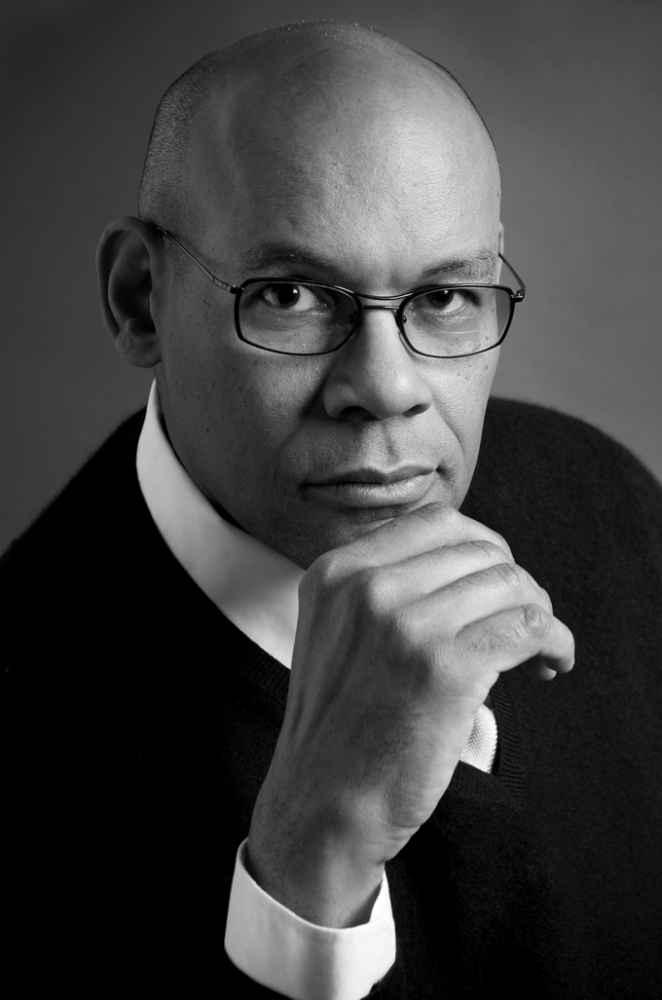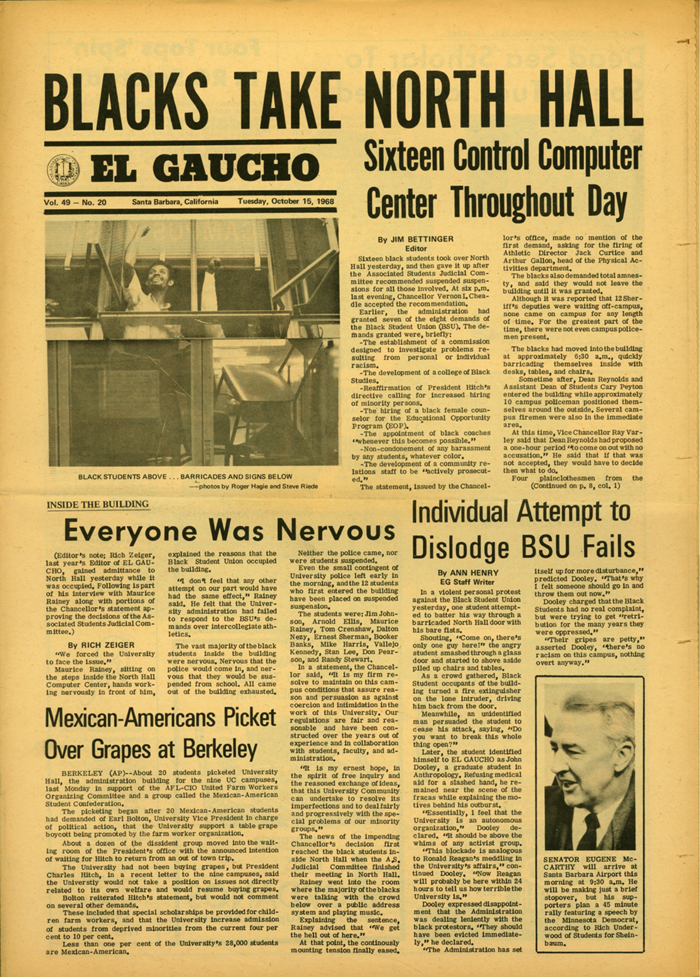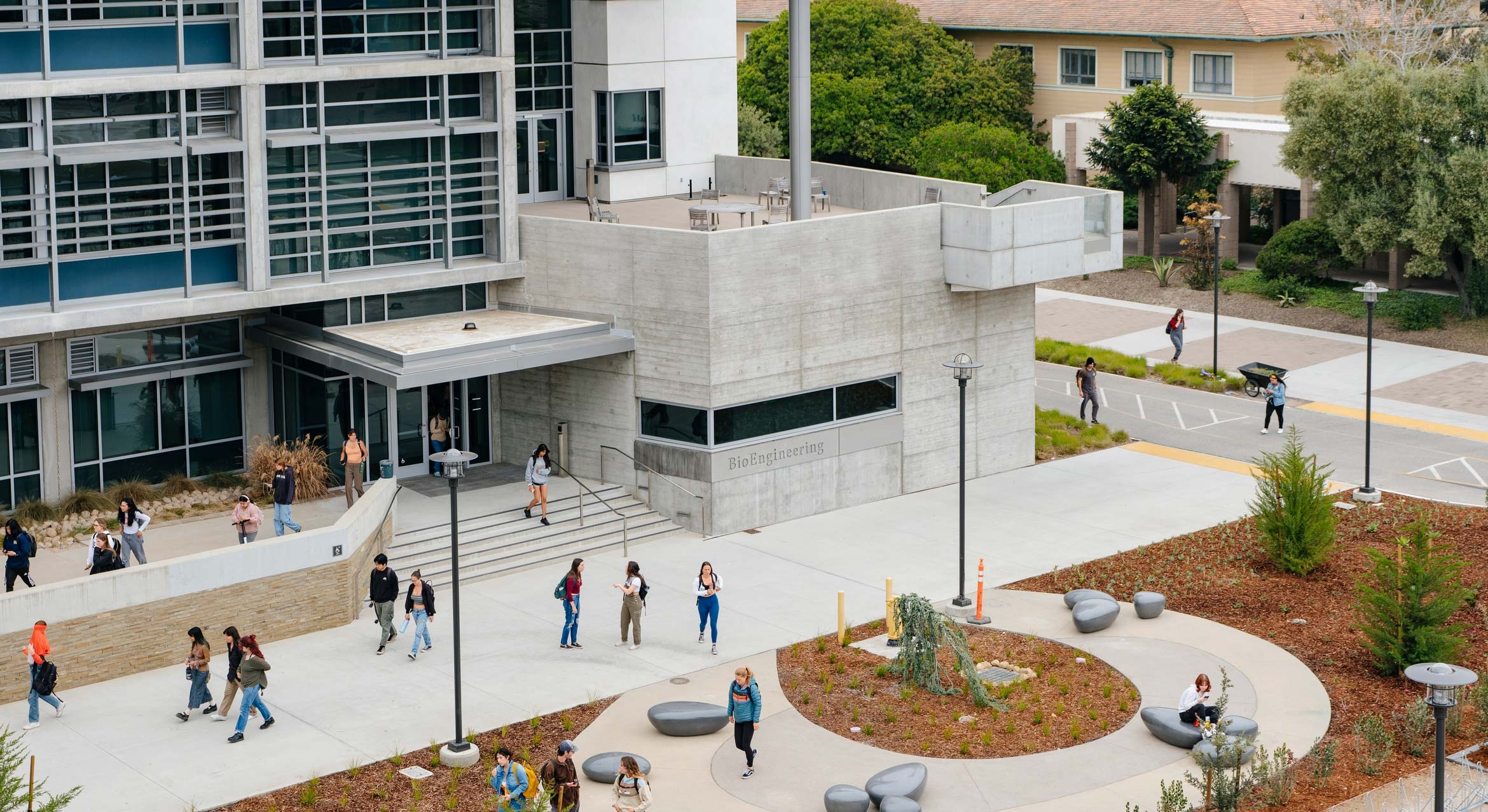
UCSB Conferences to Focus on Student-Driven Change on Campus and Around the World in 1968

1968 was a landmark year. It saw the assassinations of Robert F. Kennedy and Martin Luther King, Jr., the Tet Offensive in Vietnam, and Lyndon Johnson's refusal to accept his party's nomination for a second term as president of the United States. At UC Santa Barbara, 1968 also saw the takeover of North Hall by a group of black students who barricaded themselves in the building and demanded, among other things, the development of a black studies program.
Their action led to the founding of UCSB's Department of Black Studies and Center for Black Studies, and paved the way for the Chicano studies program that would follow a year later. To mark the 40th anniversary of the North Hall takeover and the ensuing changes in education, two conferences will take place at UCSB from November 20-22. Both are free and open to the public.
"1968: A Global Year of Student Driven Change," a three-day conference organized by Jeffrey Stewart, professor and chair of black studies, will revisit the birth of the student movement and address the pivotal issues related to education in the world today. The conference will be held in the University Center's Corwin Pavilion and the campus's MultiCultural Center Theater.
A one-day conference on the 40th anniversary of the Plan de Santa Barbara Conference, which took place at UCSB in 1969, is scheduled for Friday, November 21. Organized by Mario García, professor of history and Chicano and Chicana studies, it begins at 1:30 p.m. in the McCune Conference Room, 6020 Humanities and Social Sciences Building. The 1969 conference of Chicano students, faculty, and staff was a historic event that produced a blueprint for a statewide organization of Chicano students and the development of Chicano studies programs. This blueprint became one of the most important documents of the Chicano movement of the 1960's and 70's.
"1968 was a transitional year," said Stewart. "Things were happening all over the world in a kind of synergy no one had seen before." The conference examines student movements in a global context, paying specific attention to the violent student and worker uprisings in May that nearly toppled the city of Paris; and the student protests in Mexico City's Tlatelolco Square in October that resulted in the massacre of students, workers, and citizens who had gathered to protest the army takeover of the National University.
"The conference looks back at how black students changed the UCSB campus, but it also takes a global view of how student-driven activism changed the world," said Stewart. "We want to examine the upsurge that occurred in the willingness of students around the globe to take the nature of their education into their own hands. We see the formation of black studies programs and departments as the vanguard of a larger shift in the student-teacher, college-community, middle class-lower class relations in mid-20th-century education."
Among the conference participants are keynote speaker Haki R. Madhubuti and Jean-Pierre Duteuil. An award-winning author, educator, and poet, Madhubuti is the founder and president of Third World Press, the largest independent black-owned press in the United States. Duteuil, who studied at the University of Nanterre, where activities leading to the May uprisings began, co-founded the Mouvement du 22 mars (March 22nd movement) in 1968. Also the founder of Acratie Editions, Duteuil remains an activist in anti-nuclear and anti-colonialist movements and has written several articles on contemporary and social issues.
Other participants include George Lipsitz, professor of black studies at UCSB; Monifa Love Asante, coordinator of the creative writing program at Morgan State University in Baltimore; Gilbert González, professor of Chicano studies at UC Irvine; Jorge Mariscal, professor of literature at UC San Diego; Carlos Haro, associate director of the Chicano Studies Research Center at UCLA; and Aida Hurtado, professor of psychology and Latino studies at UC Santa Cruz.
Related Links



